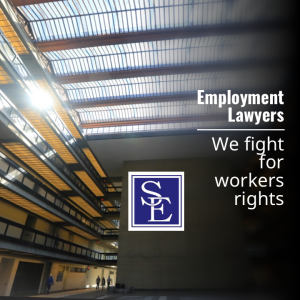On July 9th, President Biden issued an Executive Order in the spirit of promoting competition within the American economy, in hopes to lower prices of consumer goods and resources, increase wages for workers, promote innovation, and accelerate economic growth. This Order addresses nationwide threats of corporate power and anticompetitive practices, as the percentage of industries dominated by large companies continues to grow and the rate of new business formations steadily declines. Competition decline coincides with concerns for slowed productivity growth, business investment and innovation decline, and widened income, wealth, and racial inequality. The President is attempting to “level the playing field” for American workers, taking decisive action to reduce the trend of corporate consolidation, increase competition, and deliver concrete benefits to America’s consumers, workers, farmers, and small businesses.
 Most notably, the Executive Order criticizes the use of non-compete agreements as an obstacle to American workers, driving down wages and limiting employees’ ability to reenter the workplace when changing jobs. Non-Compete agreements act as a “barrier to competition,” under which one party agrees not to enter into or start a similar profession or trade in competition against another party, usually outlining restrictions based on time, geography, and area of business. Non-compete agreements are a type of restrictive covenants as they restrict the worker’s ability to move freely between employers and competitors within industries. Non-competes exist to protect employers from their departing employees who could potentially use protected information they learned throughout their employment to compete against their former employers. While at first, the purpose of non-competes was to provide the employer with an additional level of protection, these agreements have transformed into a manipulative tool to control former employees and eliminate threats of competition. Because most employees cannot afford the high costs of litigation, the mere threat of litigation for breach of a non-compete agreement usually results in the employer being successful in shutting its former employer’s new employment or prospective employment. These realities are increasingly getting the attention of state legislators who seek to reform the way non-competes can be used by employers.
Most notably, the Executive Order criticizes the use of non-compete agreements as an obstacle to American workers, driving down wages and limiting employees’ ability to reenter the workplace when changing jobs. Non-Compete agreements act as a “barrier to competition,” under which one party agrees not to enter into or start a similar profession or trade in competition against another party, usually outlining restrictions based on time, geography, and area of business. Non-compete agreements are a type of restrictive covenants as they restrict the worker’s ability to move freely between employers and competitors within industries. Non-competes exist to protect employers from their departing employees who could potentially use protected information they learned throughout their employment to compete against their former employers. While at first, the purpose of non-competes was to provide the employer with an additional level of protection, these agreements have transformed into a manipulative tool to control former employees and eliminate threats of competition. Because most employees cannot afford the high costs of litigation, the mere threat of litigation for breach of a non-compete agreement usually results in the employer being successful in shutting its former employer’s new employment or prospective employment. These realities are increasingly getting the attention of state legislators who seek to reform the way non-competes can be used by employers.
This attack at non-compete agreements follows research suggesting that industry consolidation is decreasing advertised wages by as much as 17%, and tens of millions of American workers are being forced into non-compete agreements. Non-compete agreements are increasingly popular among all or most industries, oftentimes trapping employees in underpaying positions. Most notably, the overuse of non-compete agreements was criticized when Jimmy John’s, the national fast-food chain restaurant, began having employees sign non-compete agreements restricting their sandwich makers from working for competitors. In President Biden’s remarks, he referenced a similar hypothetical non-compete between McDonald’s and Burger King that would disallow a McDonald’s worker from taking a job at a nearby Burger King, asking “Come on. Is there a trade secret about what’s inside that patty?”
 New Jersey Employment Lawyers Blog
New Jersey Employment Lawyers Blog

